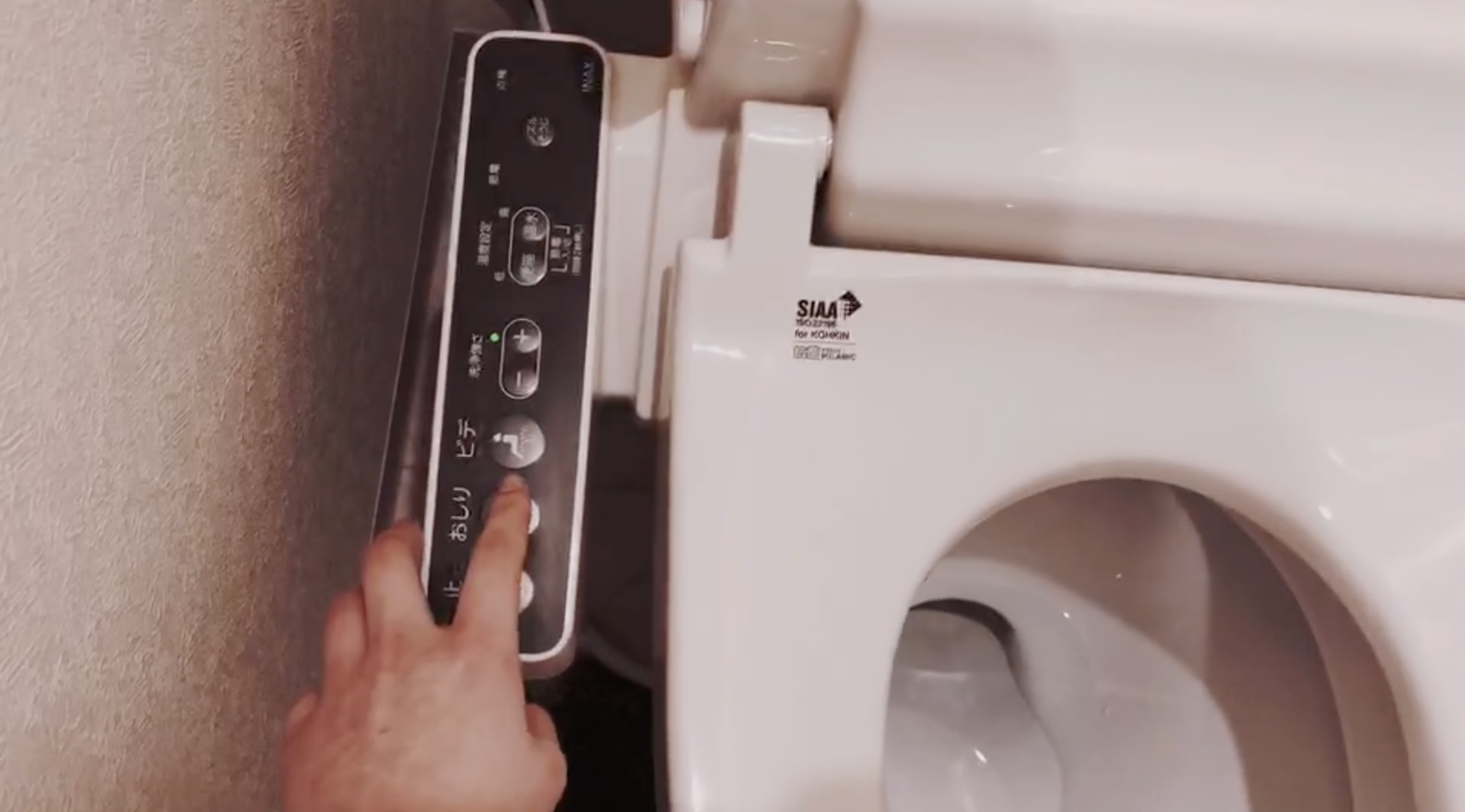The power of sound. Have we unlearned to live in stillness?
While going downstairs to grab my laundry the other day, I had to take our building’s staircase, which forces me to pass four different doors. Thanks to the fantastic logistics and the very minimalist choice of doors design in our building, each of our neighbor’s doors has a small gap at its bottom, where the door does not quite touch the floor. This enables me to always feel like an active participant in their lives when I am going down the staircase. Oh, the things I have heard…
Nevertheless, last Friday I was invited into what felt like a remix of four different radio stations. One could say that with Dutch construction, what you do is everyone’s business, but in my case, I would have to refine this saying to the following: what you listen to, becomes everyone’s business.
What struck me, while gliding down my deathly steep stairs (the epitome of Dutch houses) was that at the same time, every household was enjoying some kind of sounds. That no one could stay in silence. My neighbors, including myself, were all listening to music while cooking, showering, doing the laundry, or even just sitting on the couch. Basically, any activity ought not to be done in silence. There is this tremendous need to fill what we see as ’emptiness’. We want to avoid stillness. But why?
While being interviewed for the Elite Daily article Why Silence is so uncomfortable, Dr. Danielle Forshee says that: “silence generally stimulates us to be able to notice our automatic thoughts,”(read the more nuanced approach to discussing silence here), which we often do not want to necessarily deal with. This is one thought I had already discussed in my previous post, in which I interviewed a psychology student on what makes social media so addictive (check it out here). She explained that we are looking out for a sort of ‘sugar kick’, a high, while endlessly scrolling through social media. In addition to this, apart from craving this one dopamine kick, scrolling allows us to mute any unwanted thoughts. The same applies to music. One could see it as a refuge, serving as a pleasant distraction. This approach makes silence in an era, in which everything we touch either blinks, makes a sound, or is followed by a vibration, look like the enemy.
I have observed this pattern in other instances as well, after all, don’t we all know the phrase “awkward silence” when referring to a conversation. The last thing you want is for there to be no comeback, no dialogue, no sound. Silence has become quite the luxury, or let me rephrase that. Not silence in itself, but mastering and actually enjoying it in the digital age has. One little search on Google allows us to register the multiple ways in which people in the 21st century try to befriend stillness and unlearn our habit of passive listening. Take the example of The Five-minute journal. In exchange for 5 minutes of just sitting down and writing in silence (and your willingness to pay around 30 bucks), this journal promises to focus “your attention on the good in your life. Improve your mental well-being and feel better every day”.
Well doesn’t that sound promising? Another method that has been heavily promoted on social media in regards to stillness has been meditation. The practice many connect to Hinduism has been enacted for centuries. It takes many different shapes, yet the most common one is supposed to be practiced in a position as shown in the following image.

The main idea of meditation is to ground yourself and take the time to just be. In other words, detach from the outer world and do the inner work and do exactly the opposite of what I have previously described when talking about the addictive character of social media. Many influencers have embraced this ancient practice and made it into a trend, reaching 36.1 million posts on Instagram under the hashtag meditation.
As I have shown, there are ways in which people have tried to befriend silence, take a moment of stillness in our otherwise rushed, chaotic, and roaring world. Yet, I keep coming back to the earlier asked question, whether we have unlearned to live in silence at all.
This question might carry a negative connotation towards sounds as a whole, yet it does not have to. In a discussion with my grandma, who is a big soap opera fan, she told me that she often just enjoys hearing their dialogues in the background. It’s almost like a companion…one you can turn off when you have had enough, she says, while my grandpa childishly grins in the background. The point I am making here while using my grandma’s passion for television as an anecdote is that for many, sound serves as an addition to what sometimes feels like a lonely world.
Putting this reflection into our current contexts, I believe my earlier described observation regarding my neighbors and the use of digital media specifically for its sound, makes more sense now than ever. The COVID-19 pandemic has restricted our way of socially interacting with one another in tremendous ways and has for long periods of time completely stripped us away from having any contact outside of our own houses. Looking at sound versus silence from this angle, one could say that the world has been in a state of tension for the past year, as on the one hand the world outside, the foreground, the streets seem silent, while what happens in the background, in little apartments and staircases such as in my example, is quite the opposite. Households have been filled with music, neighbors have created quarantine bands and entertained themselves with performance and overall spirits have been lifted through sounds. Just take a look at this collection of videos, which depicts Italians singing and creating music together during the lockdown.
This thought brings me to my next and final point and that is that sounds are an indispensable part of who we are and how we interact. While many focus on social media as an interactive tool because of its visual characteristic, we should just as much focus on its audible character, as sounds too, influence our perception and way of communication. However, this shall be a topic for another blog post.
As for now, I guess I will just continue enjoying four free live concerts every time I decide to meander down my staircase and appreciate the often forgotten connection we share through sounds.
Want to know more?



As someone who tends to get stressed from not having sound around me, it is really interesting to read about ‘silence’ and how others deal with it. I personally really dislike it when there is no sound, because it feels unnatural. I live in a place where there are a lot of kids and in my household the radio tends to be on for the whole day. I am used to all these sounds surrounding me. However, quite some time ago I got into quite a bit of a mess in my head and couldn’t make sense of it. Every extra sound got a bit too much for me to handle. My psychologist told me that this probably has to do with the information overload that we have, even just from the news, and said that I should try to spend 30 minutes staring. Not meditating, not writing. Staring. Doing literally nothing. She reasoned that, due to the amount of information, our brains are not able to work through our thoughts properly. By just staring for 30 minutes and letting your thoughts wander, without you controlling their direction, you make sure that your brain is able to keep up with everything. It isn’t meditating, though I guess it is somewhat similar to detaching yourself.
So, if you ever feel like meditating isn’t working, I advise you to just turn on your monkey brain, sit in front of a blank wall and stare. Or take that bicycle while you can and ride some idle rounds, ‘turning off’ your brain. In this hectic time, it might just be helpful.
Hey Anoushka! Thank you for sharing your experience with us (me reading this). Very insightful! Staring is surely also a great practice…some people do that with landscapes for example. They just got to a field or any open landscape area and just stare. I can imagine how refreshing that must be, to just ‘snooze’ your brain and all the noise that surrounds us for a little bit.
I shall try this one day! Thank you for suggesting this.
It was a wonderful read, you managed to navigate between personal emotional experiences and factual information beautifully. While reading this blog post, I remembered my music teacher talking about composition 4′33″ by John Cage. Even though some people perceive it as four minutes, thirty-three seconds of silence, every time the composer would perform this piece, it would vary depending on the audience (someone would sneezes of caught). In a way, this musical piece concludes that we do not have such a thing as complete silence. But I do agree that we do need to learn to deal with our minds state when the surrounding volume goes almost mute. It would also be interesting to explore how human unwillingness to be with our thought by making louder sounds in concerns to digitalization contributed to noise pollution.
Thanks Aleksa! Ah yes, I remember the piece….great example of how even silence can be such an individual experience. Also, your idea of nice pollution is one to be explored…I mean if you look at all the gadgets we have on our phone…why didn’t we decide to have them without sound? Why do we choose to have a little “cling” every time someone texts us…maybe this is also connected to another facette of silence…that we connect it to being lonely…which automatically has a negative connotation. I am sure one could dive deeper into researching the connection between digital stimulus, noise, and our fear of being lonely/in silence. Maybe they are all connected to the fact that we cannot handle our own thoughts? Or we do not want to.
What an amazing and insightful post! Personally, I really struggle to deal with silence in most circumstances. When studying for example I have to have some form of sound playing (be that in the background or loud enough to be able to be actively listened to). As you mentioned meditation, I recall some times, when I try to have a moment of silence, I mostly just sit in front of my window and just look outside (however ‘simple’ or stupid that might sound). It does actually help me calm all my thoughts for a bit but then I get back to (over)thinking and I’ll be putting my music back on again. Thank you for the great blog!